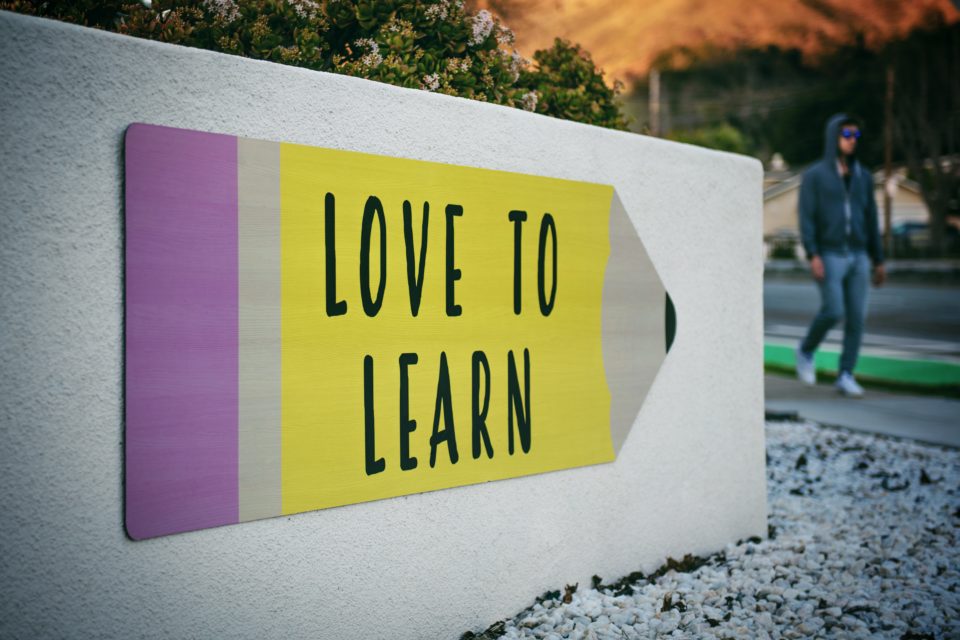In this article, I want to focus on one of the nodal points that stands between action and organizational development: learning.
So far, in the first and the second posts, I have presented some insights on how to observe and transform a context, in order to act in a generative manner in the organizational context.
When I talk about adult learning many people widen their eyes wondering:
do adults learn?
Well yes indeed, adults do learn!
But in what sense?
Learning is not something that only applies to children, quite the contrary! Are you familiar with Maria Montessori? The wooden toys, the constructions, the sensory panels?
Yes, there are plenty of scholars who, instead of delving into how children learn from context, have delved into how to empower adults to learn.
And it just so happens that they are almost all united by experience and action in the field!
In the next few lines some concepts will be presented with a vocabulary which is very close to the academic one. What I will try to do is to bring some examples that can help you transfer these concepts in your context.
This article does not aim to give solutions but rather provide a different perspective to answer the question that I proposed in the first of this series of three articles and that is frequently asked by clients:
how do I motivate the people on my team?
In the following we will take a look at motivating to action through experiences, learning and community.
EXPERIENCE TO LEARN
The possibility of considering learning as a catalyst for motivating a team to organizational development stems from a profound shift in paradigm.
This transformation occurred at the same time as the changes we saw in the first article, from the analytics to the systems view.
Approximately towards the middle of the last century there was a strong rapprochement of some professionals in the field of adult education with the academic world.
One of them is Malcolm Knowles who developed a theory totally dedicated to adult learning through the concept of andragogy.
This theory has gone through many transformations due to the fact that it is based on observations made in the field during Knowles’ professional experience.
The element that has never changed in the development of the theory is the role that experience has in the development of new learning for people.
THE REASON FOR LEARNING IN ORGANIZATIONS
But what does learning have to do with the organizational life?
If adults learn through the experiences they have throughout their existence then we can make a specific reflection on investments at the professional level as well.
If we think about it, working adults spend about a third of their time in organizations: it’s clear that a part of the experiences they have is work-related.
Professional life, in fact, is to be considered as an integral part of a person’s biography: it is precisely for this reason that it is essential to guarantee its quality by offering space for development.
Allowing a person to gain experience within a professional context allows, as we have seen, that person to learn.
Learning for an adult person means only in part the acquisition of new information.
In fact, the deeper meaning of learning in adulthood allows one to contextualize experiences in new environments.
This shift fosters creative solutions to known problems or problems to be known.
The learning of employees, indeed, understood as a means of creating something new in a creative way, benefits the entire organization.
In this sense, offering people the chance to develop in terms of lifelong, lifewide and lifedeep learning benefits both the individual and the organization itself.
Considering learning closely connected to experience and contexts of application invites me to introduce a construct: situated action.
This is presented very clearly in a text by Fabbri where it is defined that knowledge is not separated from doing and our learning does not derive exclusively from an individual cognitive activity, but also from a social and collective activity. Because sociality, sharing and co-creation allows the development of new knowledge.

foto by Jason Goodman from Unsplash
TOWARDS ORGANIZATIONAL LEARNING
As we all know, in organizations, it is not enough for a single person to embark on a developmental journey to ensure systemic improvement.
The learning that a single person acquires through his or her actions is not sufficient to generate the collective movements that are useful for organizations.
For the systemic development of the organization, it is necessary to move from an individualistic view to a collective view of learning.
Usually at the collective level, thus in organizations, the movements of collective learning that lead to important innovations start from a problematic situation.
Generally, when you try to solve a problematic (and unknown) situation through processes used for other situations, you fail and get unexpected results.
For this reason, processes of organizational inquiry are triggered which, when successful, bring out new knowledge.
In order to be defined as organizational knowledge, it must be retained over time and must have an influence on the routines of action and thus on the way in which similar problematic situations are resolved.
Let’s look at an example.
Problem situation: within the office that manages the supply chain of an organization there is a great difficulty in the management of the flows because of a great shortage of materials.
Effects of the predefined action routine in a situation other than the impending one: materials continue to be missing, new conflicts develop between the people managing the flow of materials.
Organizational inquiry: people responsible for managing the flow of materials meet to define a solution, which may for example result in a new methodology for planning the flow.
Innovation has led people to develop new knowledge.
This knowledge has the potential to become a routine of action and therefore an organizational asset when it is shared and embraced by the system and used to solve similar problem situations.

foto by Tim Mossholder from Unsplash
NEW ORGANIZATIONAL PERSPECTIVES: POLIS LEARNING
To develop collective movement and organizational learning, it is essential, as we have seen, to have a common goal.
Through the sharing of the common goal, people are motivated to act in the same direction.
In the above example, the common goal can be the smooth running of production and the sale of the finished product.
In this case we observe that the passage from the individual action to the collective action, and consequently from the individual learning to the collective one, passes through the concept of polis.
By polis I mean an organization that acts for a common interest, in an organized way in order to support the organization itself.
In fact, one of the key elements in this vision is the sharing of purpose, understood both as sharing at a communicative and dialogical level, and at the level of congruence with the personal intentions of each person.
Lastly, to explore further, a couple of books for you!

